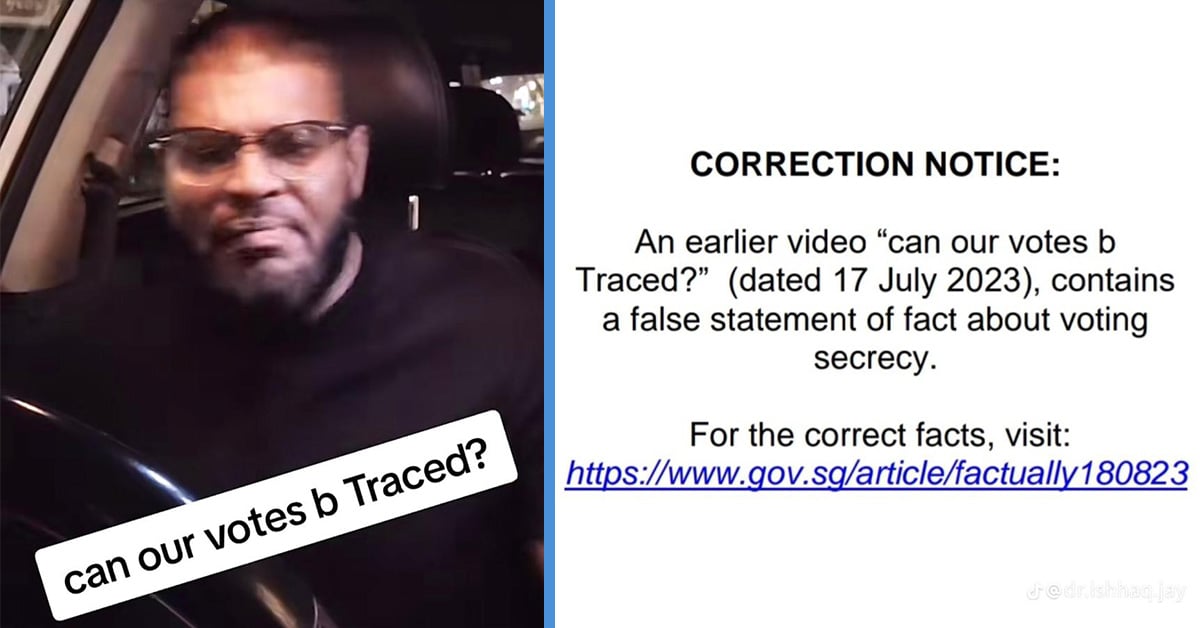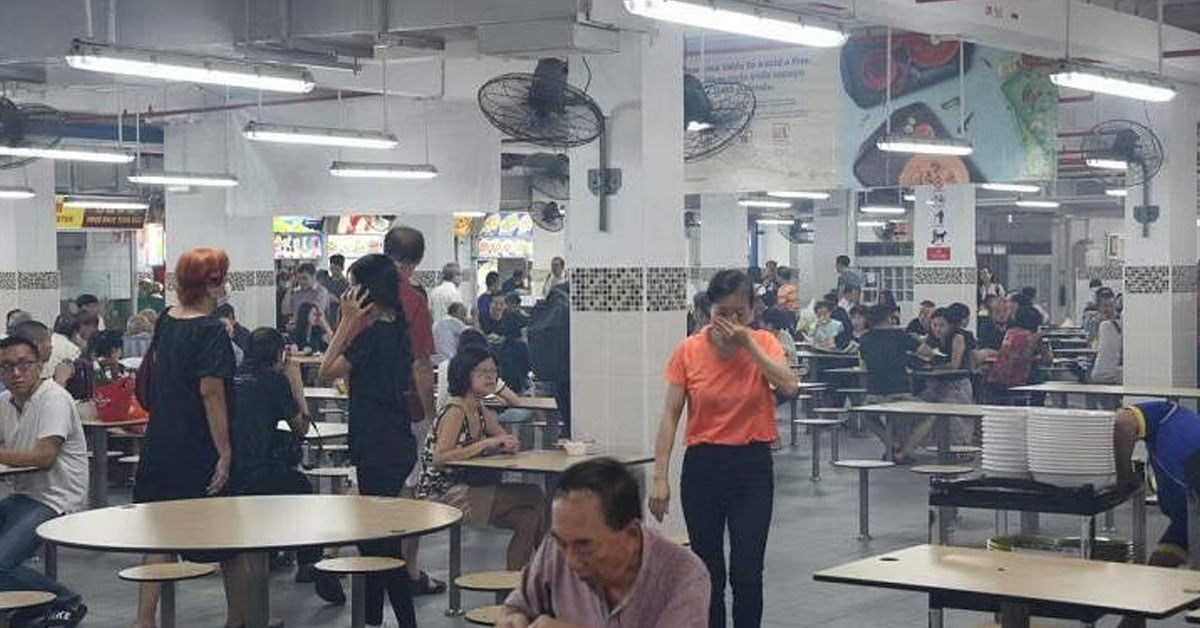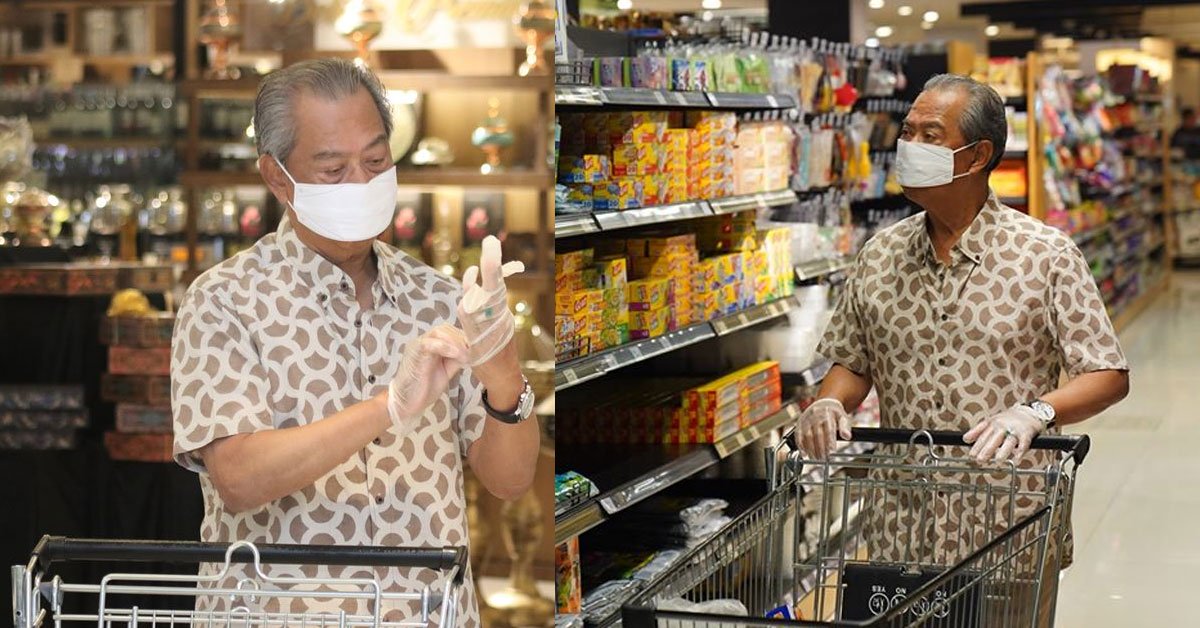Now that the presidential election is coming, some people have taken to social media to express their opinions.
However, not everything you see online is accurate.
In a TikTok video, a TikToker by the username of @dr.ishhaq.jay said that the Government can trace who a voter has voted for.
He even alleged that the voter could be penalised based on their vote.
He claimed that the Government can trace votes based on the ballot paper’s serial number.
Since then, he has been issued a Protection from Online Falsehoods and Manipulation Act (POFMA) correction order.
POFMA Correction Order Issued to TikToker
On 18 August, an article regarding the video was published on the Government’s fact-checking website Factually.
The article listed the reasons why the TikToker’s claims were untrue.
Citing The Parliamentary Elections Act 1954 and its predecessors, the article highlighted that voting is secret.
The article emphasised that the Government, including the Elections Department (ELD), has complied strictly with statutory procedures and obligations.
Furthermore, the article said, “the statutory procedures and obligations to protect voting secrecy are rigorous and comprehensive”.
For instance, every person authorised to attend at a polling station or count votes must make an oath of secrecy.
In addition, for votes cast in person at polling stations, “there is no break in the chain of custody of ballot papers transported from polling stations to the counting centres, and from the counting centres to the Supreme Court.”
The article emphasised the statutory procedures in place to protect voting secrecy, including the fact that ballot papers are sealed before being retained in safe custody at the Supreme Court for six months.
They are then destroyed.
In response to the TikToker’s claim that the serial numbers of ballot papers play a part in helping the Government trace votes, the article reiterated that the serial number is merely “meant to protect the integrity of the electoral process”.
The article added, “It enables accounting of all ballot papers issued and cast, and safeguards against counterfeiting and voter impersonation.
“Calling out the voter’s serial number and name also allows polling agents, who are observing the proceedings, to validate that the voters are listed in their copy of the register.”
According to the article, while the voter serial number can help to facilitate vote tracing if necessary, inspection of sealed votes is only allowed with an order from the General Division of the High Court.
Furthermore, an order can only be made in limited circumstances.
The article explained, “The Judge hearing the application must be satisfied that the inspection is required for the purposes of instituting or maintaining a prosecution or an application under Section 90 of the PEA, which seeks to void an election on certain limited grounds, including breaches of the PEA that affected the election result or corrupt or illegal practices committed in the election by a candidate.”
In closing, the article reiterated that the Government “cannot trace who a voter has voted for, as it wishes”, rendering the TikToker’s words false.
The TikTok Video
On 17 July, the TikToker, who goes by Jay, uploaded a five-and-a-half-minute video onto TikTok.
Captioning the video “can our votes be traced?”, he explained his views.
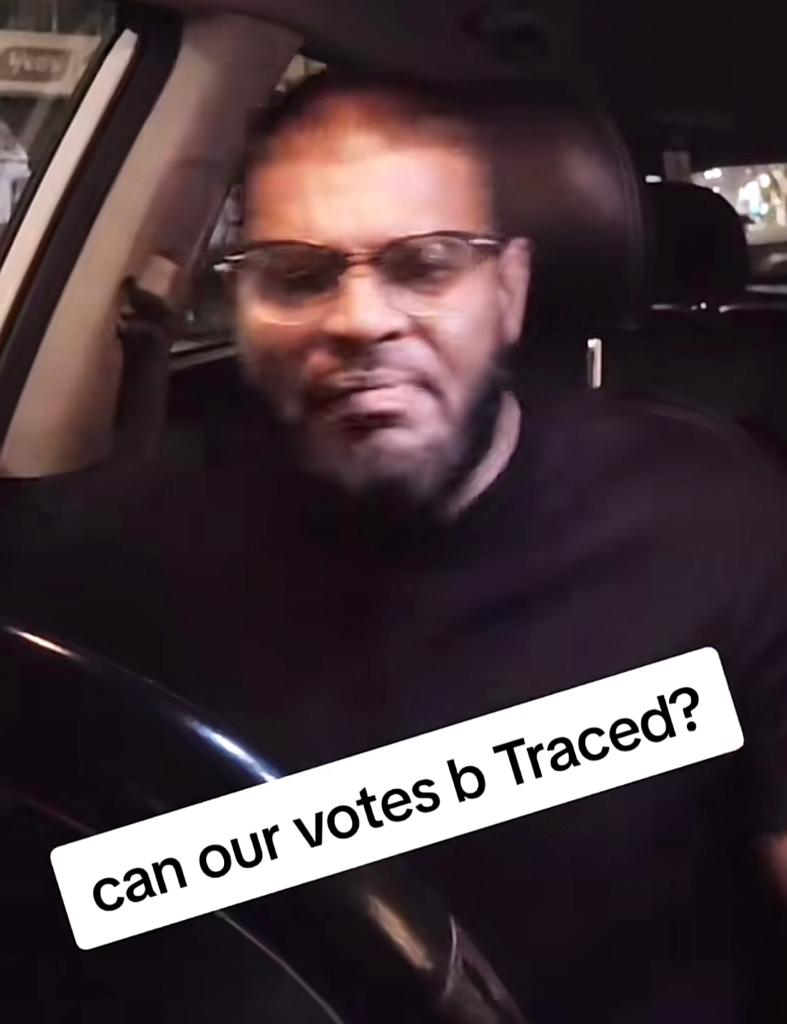
He started the video with, “If you ever vote for the opposition, your life in Singapore would be ruined.
“If you’re a civil servant, you won’t get promoted; kids can’t get good schools, can’t get good jobs, definitely not a government job.
“If you apply for HDB flat, you will not get priority.”
After this gripping (and nerve-wracking) introduction, he said, “These are all the horror stories that we have all grown up listening to.”
However, he said he wasn’t sure if these stories were true, saying he was “just a citizen asking questions”.
He continued, “The ruling party says that all the ballot papers will be destroyed after counting, but we don’t see, we don’t know.
“So sometimes, we just have a bit of mistrust in the system.”
Jay then gave examples of people telling him the “consequences” they faced for voting for the opposition.
For instance, their grandfather/father didn’t get promoted, or they were condemned in the army/police force.
Jay emphasised that he didn’t know how accurate the stories were.
He then shared how he moved to Ang Mo Kio in the last election and did not have enough time to register, making him unqualified to vote.
He also said that he didn’t vote in the previous election.
He began explaining his theory on how the Government traces votes.
He said, “When you go for voting on election day, you bring your IC (identification card), they [polling agents] will check your IC, and then they will use the big book to take your name, your address, then they will take a ballot card and put a serial number next to your name.”
He claimed that a person’s decision on their ballot card can be traced.
Jay then posited a possible change to the current physical procedure.
Citing the tech savviness of Singaporeans, he suggested that a person’s IC be scanned, and the individual be given a random ballot card.
This way, the ballot cannot be traced back to an individual.
Calling his proposed solution “free, open and transparent”, he went on a tirade about democracy in Singapore.
He added, “Our government wants an open and transparent government, right? So let’s practice what they are saying.”
Has Since Carried Out POFMA Correction Order
The minister-in-charge of the Public Service, Chan Chun Sing, instructed the POFMA Office to issue a Correction Direction order to the TikToker.
Furthermore, a Targeted Correction Direction was issued to TikTok Pte. Ltd.
The article also advised members against speculating and/or spreading unverified rumours.
A Correction Direction order requires the party who has communicated falsehood to put up a notice stating their error.
In addition, the party has to post a correction and let people know where the facts can be found.
If the party fails to comply with the order, they can be fined up to $20,000, imprisoned for up to 12 months, or both.
As of 18 August, Jay has posted a correction notice on his TikTok account.
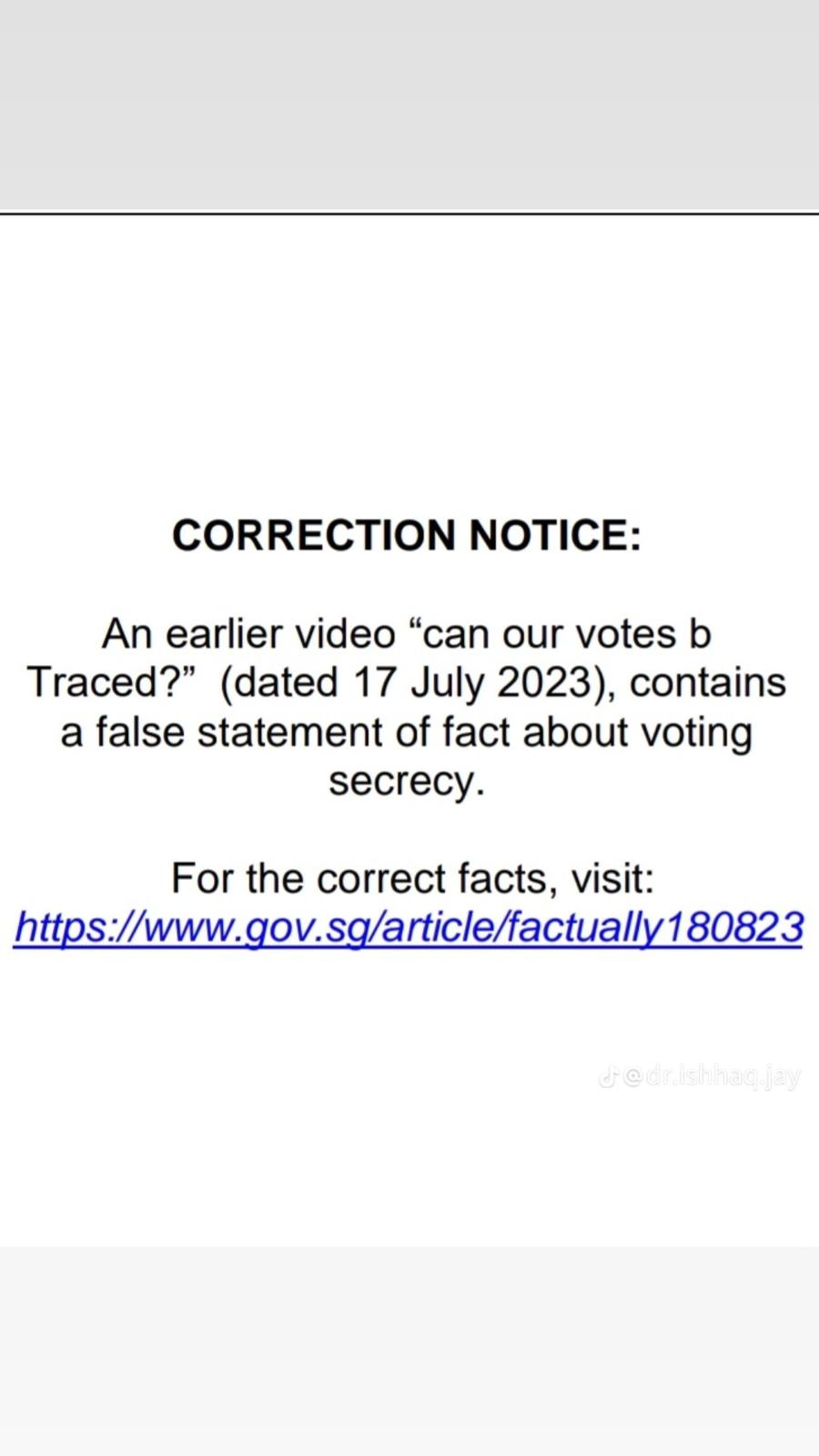
He also linked the Factually article in the new TikTok post.
Advisory on Online Conduct During Presidential Election
One week ago, the Singapore Police Force (SPF) and the Ministry of Communications and Information (MCI) released a joint advisory reminding members of the public to behave appropriately online during the Presidential Election.
Specifically, the agencies advised the public to avoid spreading misinformation and disinformation online.
For instance, persons with malicious intent may create manipulated content like deepfakes to influence the election outcome.
The advisory also mentioned that such individuals “may be liable for an offence under POFMA if they are found to have knowingly communicated these falsehoods”.
Essentially: Don’t play play.
Just three weeks ago, Lee Hsien Yang, the younger brother of Prime Minister Lee Hsien Loong, was issued a Correction Direction order under POFMA for publishing a post on his Facebook page containing false statements about the Ridout saga.
Thus, check your facts thoroughly before making claims online.
This election season, the agencies also warned that acts of harassment are punishable.
Thus, the public should not make online comments that can cause harassment, alarm or distress to the other party.
The advisory added, “Members of the public are advised to engage in online discussions on the Presidential Election in a civil manner.”
Furthermore, the public is advised against making online posts with the intention to promote animosity between different races.
In addition, the public is advised against engaging in religious violence.
Both are punishable offences.
The SPF and MCI concluded, “The online space has become an important platform for communication and exchange of information.
“SPF and MCI would like to urge members of the public to engage in responsible online behaviour to safeguard the integrity of the Presidential Election.”
